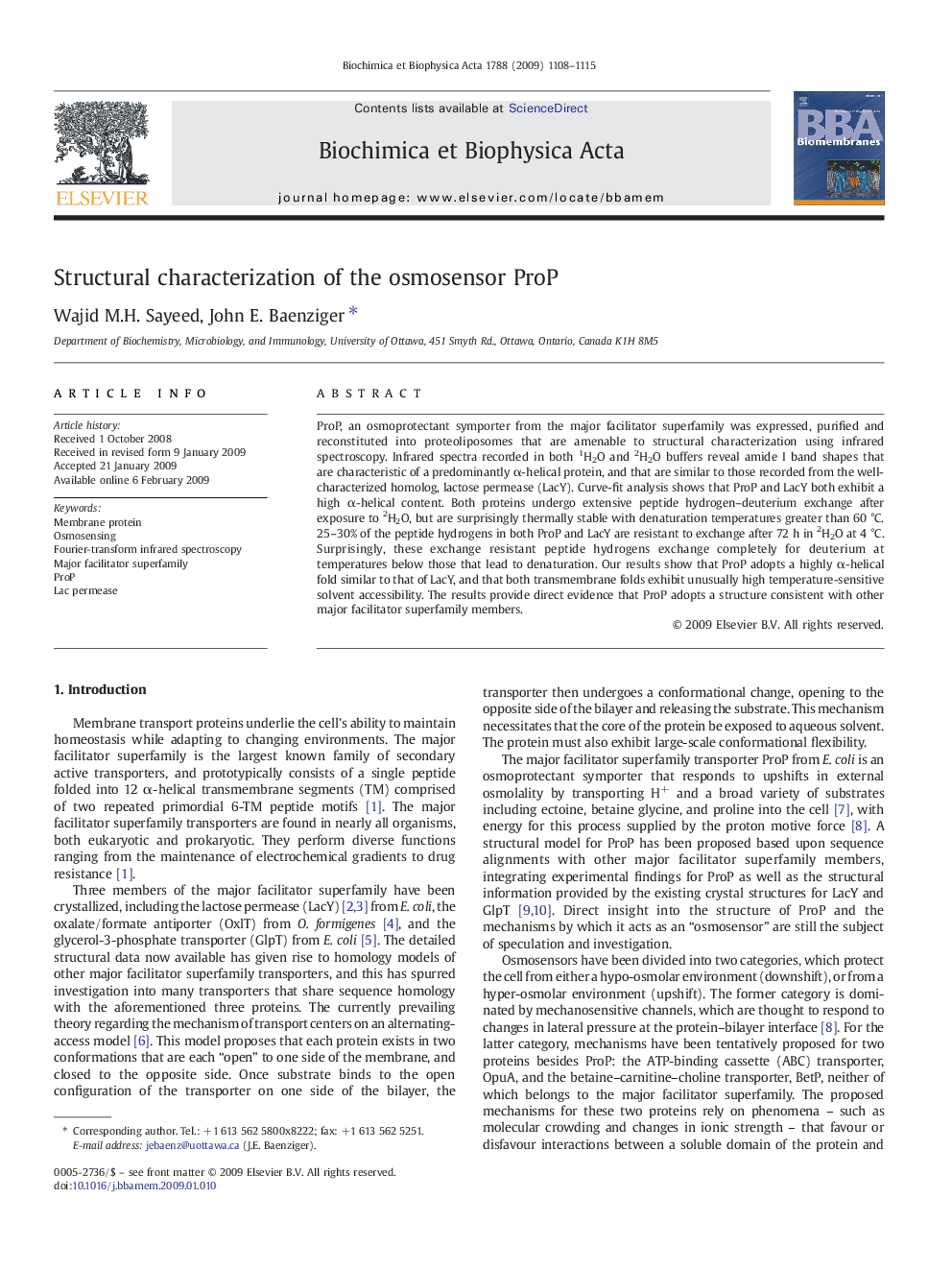| Article ID | Journal | Published Year | Pages | File Type |
|---|---|---|---|---|
| 1945188 | Biochimica et Biophysica Acta (BBA) - Biomembranes | 2009 | 8 Pages |
ProP, an osmoprotectant symporter from the major facilitator superfamily was expressed, purified and reconstituted into proteoliposomes that are amenable to structural characterization using infrared spectroscopy. Infrared spectra recorded in both 1H2O and 2H2O buffers reveal amide I band shapes that are characteristic of a predominantly α-helical protein, and that are similar to those recorded from the well-characterized homolog, lactose permease (LacY). Curve-fit analysis shows that ProP and LacY both exhibit a high α-helical content. Both proteins undergo extensive peptide hydrogen–deuterium exchange after exposure to 2H2O, but are surprisingly thermally stable with denaturation temperatures greater than 60 °C. 25–30% of the peptide hydrogens in both ProP and LacY are resistant to exchange after 72 h in 2H2O at 4 °C. Surprisingly, these exchange resistant peptide hydrogens exchange completely for deuterium at temperatures below those that lead to denaturation. Our results show that ProP adopts a highly α-helical fold similar to that of LacY, and that both transmembrane folds exhibit unusually high temperature-sensitive solvent accessibility. The results provide direct evidence that ProP adopts a structure consistent with other major facilitator superfamily members.
